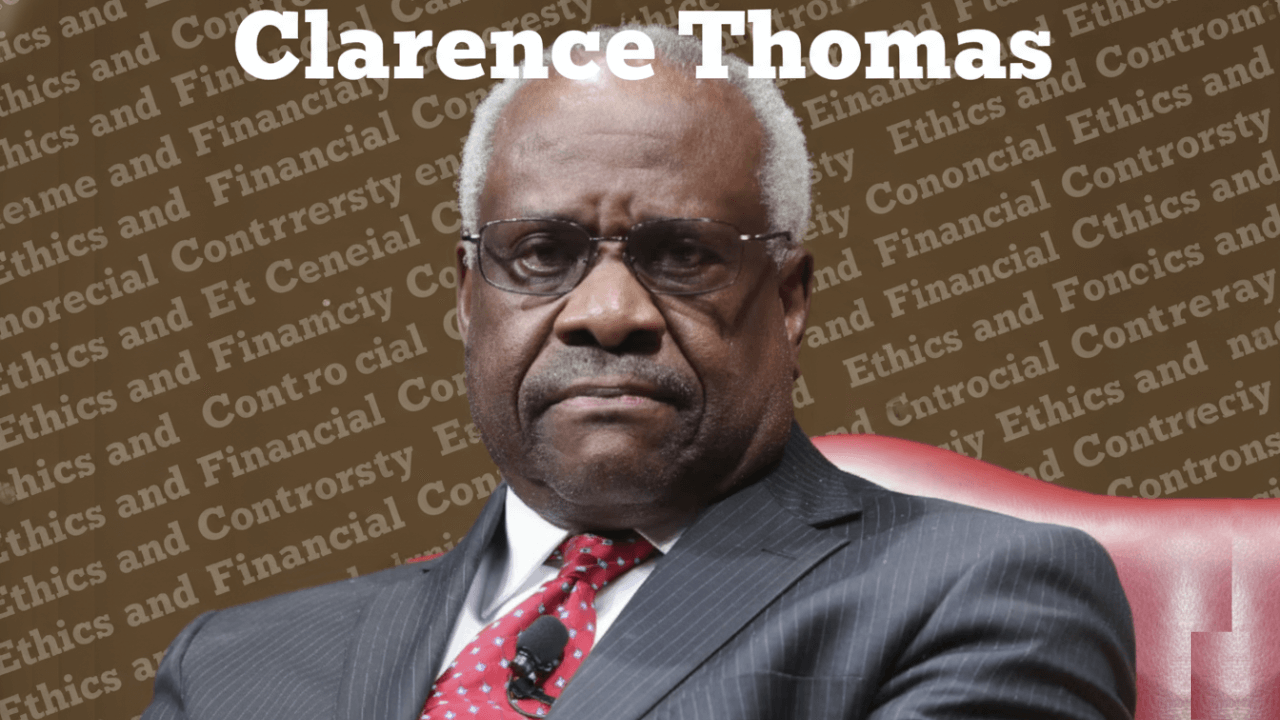The U.S. Supreme Court is no stranger to headlines, but in recent months, Justice Clarence Thomas has been at the center of some of the most closely watched developments. From ethics scrutiny to statements on legal precedent that could shake long-established rulings, these Clarence Thomas updates have sparked conversations among scholars, politicians, and the general public alike. Understanding these developments is crucial, not just for legal professionals, but for anyone interested in the future of American law.
Ethics and Financial Disclosure Controversy
One of the most discussed topics in recent Clarence Thomas updates involves questions about his financial disclosures. Allegations surfaced that Thomas had accepted luxury travel and gifts from billionaire Harlan Crow, raising concerns about judicial ethics and transparency. Critics argued that such gifts could compromise the impartiality expected from a Supreme Court Justice.
In January 2025, the Judicial Conference of the United States examined whether these matters should be referred to the Department of Justice. Ultimately, the Conference decided not to make a referral, citing that Thomas had amended his financial disclosure forms to address the issues. The decision also highlighted questions about the Conference’s authority to make such referrals in the first place.
While Thomas himself has maintained that he followed all necessary disclosure requirements, the public and legal observers have closely watched the situation. Some scholars argue that even perceived conflicts can erode trust in the judiciary, making this controversy a critical part of any discussion about Clarence Thomas updates.
Views on Legal Precedent: “Not the Gospel”
Beyond ethics, Thomas’ views on legal precedent have drawn significant attention. In recent statements, he suggested that settled legal precedents are not necessarily binding and may not determine cases on the Court’s upcoming docket. In his words, some precedents were based on “something somebody dreamt up and others went along with,” highlighting his originalist approach to constitutional interpretation.
These remarks carry weight because they suggest that Thomas might be open to revisiting—or even overturning—long-established rulings. Cases involving the Voting Rights Act, same-sex marriage, and other landmark decisions could be affected. For scholars and the public alike, this raises questions about legal stability and the balance between evolving societal norms and constitutional interpretation.
Implications for the Supreme Court and Presidential Power
Another significant angle in the latest Clarence Thomas updates involves concerns about the Court’s stance on presidential power. Caleb Nelson, a former clerk for Justice Thomas and a respected originalist scholar, has warned that the Court may be leaning toward interpretations that favor executive authority.
Nelson’s concern is that an overly pro-presidential Court could weaken checks and balances, especially under a president willing to test the limits of their power. For citizens, this isn’t just a legal abstract—it directly affects how laws are implemented and how accountable leaders are held in check.
Public and Political Reactions
Unsurprisingly, these developments have drawn a range of reactions. Political commentators, legal experts, and public interest groups have all weighed in. Some praise Thomas for his originalist philosophy and commitment to constitutional fidelity, arguing that his scrutiny of precedent is intellectually rigorous. Others worry that overturning established rulings could destabilize critical legal protections, including voting rights and civil liberties.
The media spotlight on Thomas’ financial disclosures has also amplified debates about judicial ethics. While the Judicial Conference’s decision may have quelled formal investigations, public scrutiny remains intense. Transparency, impartiality, and ethical conduct continue to dominate conversations, showing that a Supreme Court Justice’s influence extends far beyond the bench.
Key Cases on the Horizon
Several high-profile cases may soon put Thomas’ perspectives to the test. The Supreme Court is expected to weigh in on issues that could reshape American society, including challenges to the Voting Rights Act and debates over same-sex marriage protections. Thomas’ originalist philosophy and willingness to question precedent make him a pivotal figure in these deliberations.
For citizens, understanding these updates isn’t just about following the news—it’s about anticipating how judicial decisions may impact rights, liberties, and the balance of power across federal institutions.
Key Takeaways
The latest Clarence Thomas updates reveal a complex portrait of a Supreme Court Justice navigating ethical scrutiny, high-stakes legal philosophy, and the profound responsibility of interpreting the Constitution. While his financial disclosures and ethical considerations have drawn criticism, his views on precedent signal a potential shift in the Court’s approach to long-standing rulings.
For both legal professionals and general readers, the implications are clear: the decisions made on the Supreme Court today—and the judicial philosophies behind them—will have lasting effects on American law and democracy. Staying informed about these developments ensures that the public can engage meaningfully with debates over accountability, constitutional interpretation, and the future of U.S. governance.


